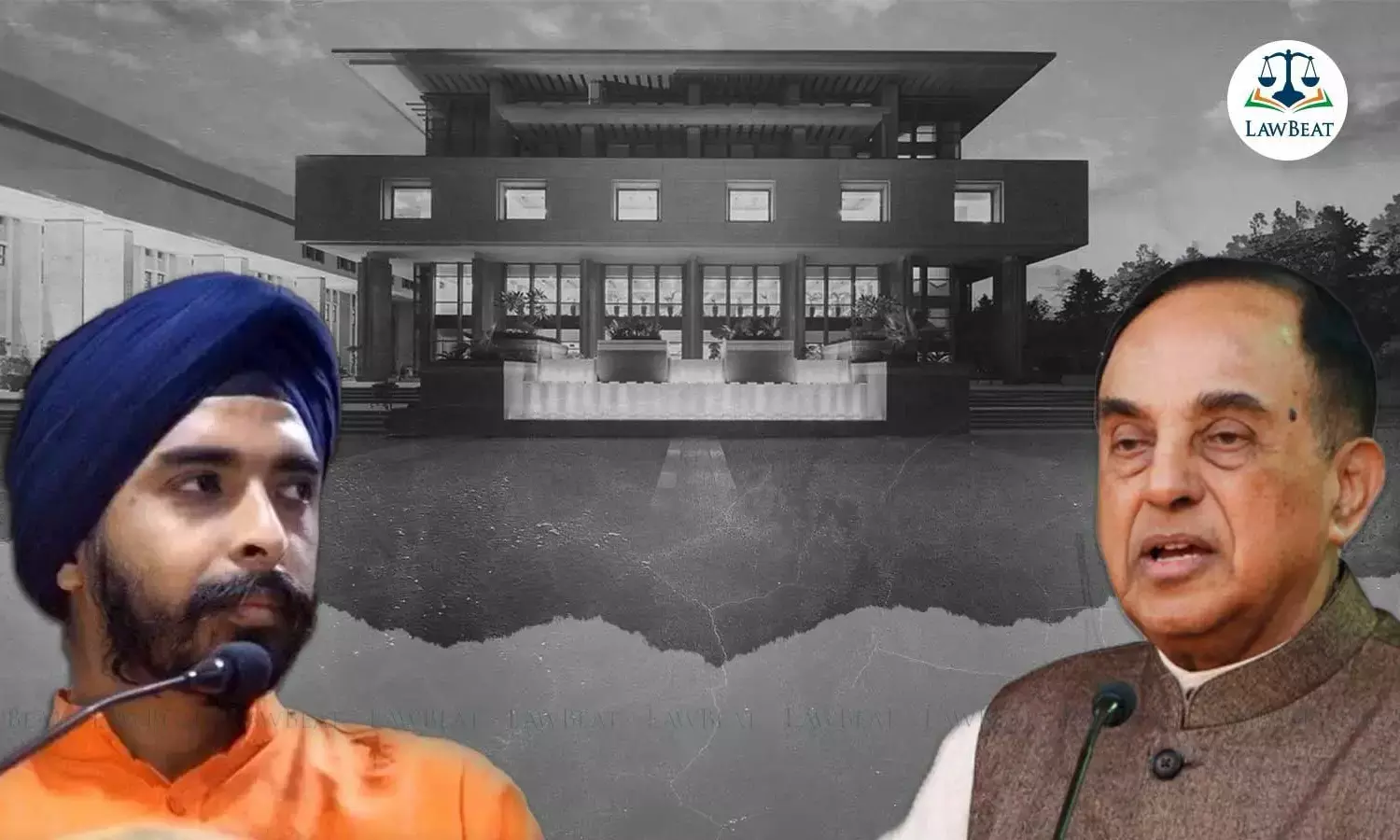Delhi High Court seeks Tajinder Bagga’s response in Subramanian Swamy’s plea challenging criminal defamation

The Delhi High Court, on Wednesday, heard the plea of Rajya Sabha MP and Bharatiya Janata Party (BJP) member Subramanian Swamy, who challenged the criminal defamation proceedings initiated by fellow BJP leader Tajinder Pal Singh Bagga. The matter arose from a tweet posted by Swamy, in which he made allegations regarding Bagga’s past.
During the hearing, the court observed that the respondent, Tajinder Pal Singh Bagga, had not filed a reply for a period of three years. Swamy’s counsel informed the court that despite repeated service of notice, the respondent failed to place his reply on record. The counsel further submitted that the case had been listed for final disposal on several occasions, yet the respondent did not comply with the directions of the High Court while continuing to appear before the trial court.
The court inquired whether proper notice had been served to the respondent. Swamy’s advocate confirmed that the notice had been duly served. Taking note of the prolonged inaction, the bench of Justice Ravinder Dudeja granted the respondent liberty to file a reply and renotified the matter for further hearing on August 26, 2025.
Background
The controversy originated from a tweet posted by Swamy on September 28, 2021. In the tweet, Swamy alleged that Bagga had been jailed several times for petty crimes prior to joining the BJP. He cited information reportedly received from journalists in Delhi and suggested that BJP President J.P. Nadda be made aware of these allegations.
Swamy's tweet stated: “Delhi journalists inform me that before joining BJP, Tajinder Bagga had been jailed many times for petty crimes in New Delhi Mandir Marg police station. True? If so, Nadda should know”
In response, Bagga served a legal notice on Swamy, demanding either proof to substantiate the claims or a public apology. Swamy did not respond to the notice. Consequently, Bagga filed a criminal defamation complaint under Section 500 of the Indian Penal Code before the Rouse Avenue Court in Delhi.
On March 22, 2022, the trial court found prima facie grounds to proceed and issued summons to Swamy. The court observed that the tweet, made without verification, was sufficient to cast aspersions on Bagga’s character.
Swamy approached the Delhi High Court, seeking to quash the summons and the defamation proceedings. The High Court stayed the trial court proceedings and issued a notice to Bagga. The court had asked Swamy to satisfy it on the maintainability of the petition, as he had not invoked the revisional jurisdiction of the Additional Sessions Judge but had instead moved the High Court under Article 226/227 of the Constitution, read with Section 482 of the Code of Criminal Procedure.
The bench, led by Justice Dinesh Kumar Sharma, noted that summoning orders were ordinarily subject to revisional jurisdiction. Despite this, the court granted a stay on the trial court’s order dated March 22, 2022. Bagga maintained that the tweet was false and defamatory.
